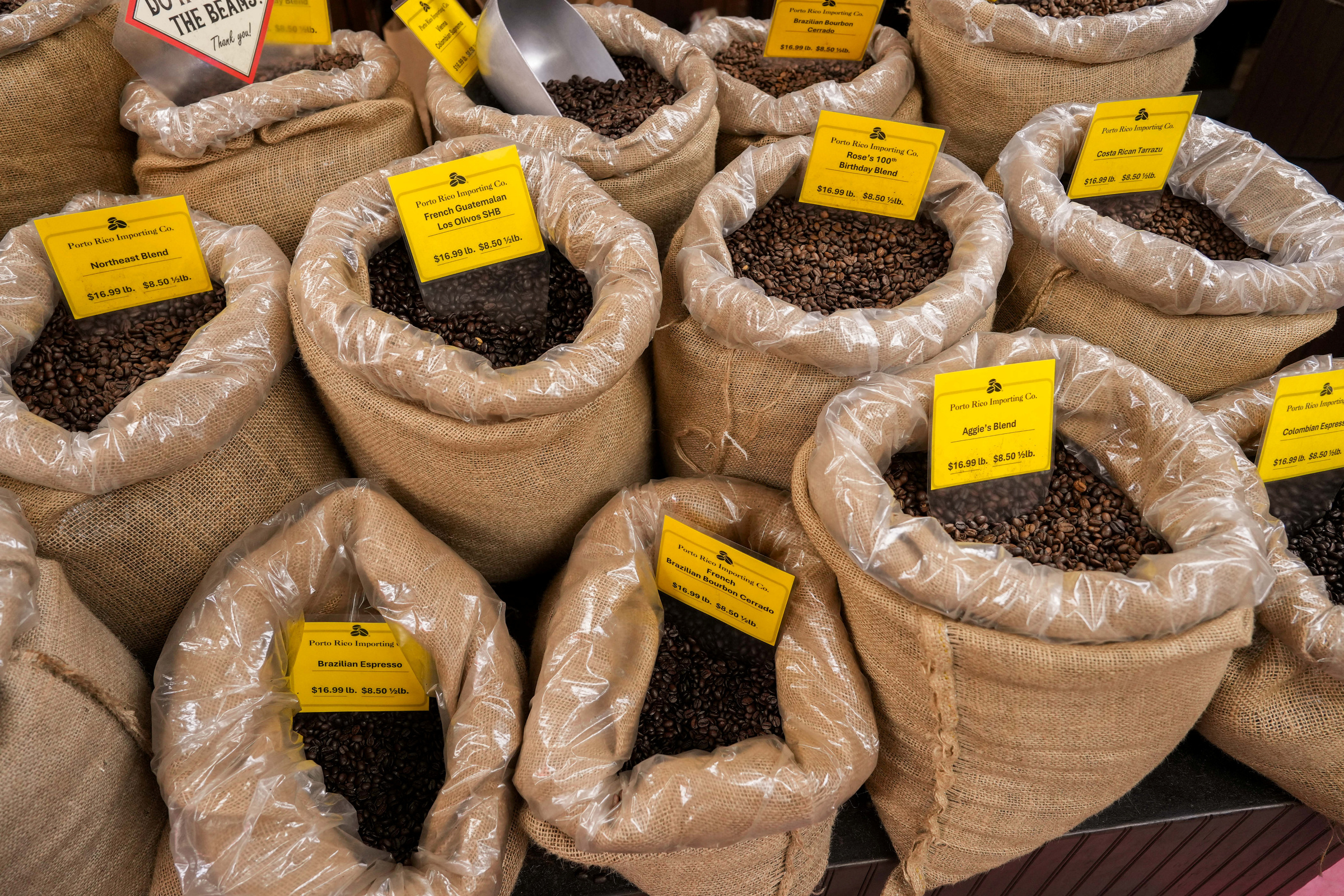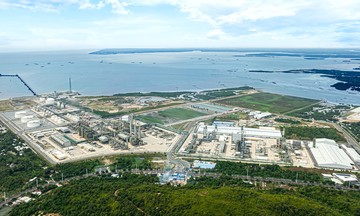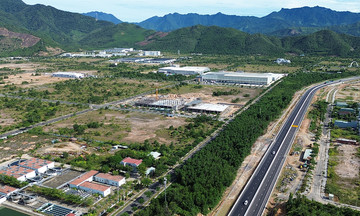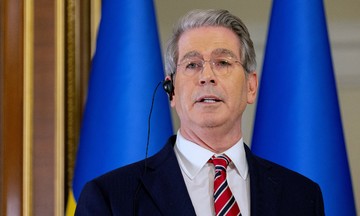Last week, the administration of US President Donald Trump announced that a 50% tariff on some Brazilian products, including coffee, would take effect on 6/8. Brazil is the world's largest coffee producer, with 85% of its production destined for export. According to the Coffee Exporters Association (Cecafe), Brazil sold a record 50.4 million bags (60 kg) globally in 2024, equivalent to over 3 million tons, a 38.5% increase compared to 2023.
Judith Ganes, an independent commodities analyst, suggests that the US's exclusion of coffee from the list of exempted Brazilian products indicates that Trump is using the commodity as a political bargaining chip with Brazilian President Luiz Inacio Lula da Silva.
Previously, Trump claimed that the Brazilian Supreme Court was treating his ally, former President Jair Bolsonaro, unfairly. Last week, the US also sanctioned Brazilian Supreme Court Justice Alexandre de Moraes.
 |
Coffee beans, including those from Brazil, at a store in Porto Rico, New York, on 15/7. Photo: Reuters |
Coffee beans, including those from Brazil, at a store in Porto Rico, New York, on 15/7. Photo: Reuters
With a demand of around 25 million bags (1.5 million tons) per year, the US is the world's largest coffee consumer. A third of this comes from Brazil, corresponding to bilateral trade worth 4.4 billion USD in the 12 months ending in June.
According to traders, coffee loaded in Brazil before 6/8 can enter the US duty-free until 6/10. But in the long term, the 50% tariff forces commodity traders and coffee exporters in Brazil to find alternative markets for the approximately 8 million bags (480,000 tons) exported to the US each year, equivalent to Ethiopia's entire high-quality coffee production.
"Global coffee trade flows will be disrupted. The impact will ripple from Sao Paulo to Seattle – from the farms to the roasters, coffee chains, supermarkets, and even the morning commuter," said Michael J. Nugent, President of commodity brokerage firm MJ Nugent & Co.
It is likely that Brazil's coffee exports will shift to China, its largest trading partner. According to Marc Schonland, an independent consultant to the US coffee industry, this prospect is aided by bilateral trade relations within the BRICS group. On 2/8, the Chinese Embassy in Brazil announced that China had granted export licenses to an additional 183 Brazilian coffee companies for a period of 5 years.
Coffee demand in China has also increased significantly as young people are increasingly switching from tea to coffee. Consumption has grown by about 20% annually over the past decade, and per capita consumption has doubled in the last 5 years. In the first half of the year, Brazil was the main supplier, exporting 538,000 bags (32,280 tons) to China, according to Cecafe data.
In addition, Brazilian coffee could also flow to the European Union (EU), where it is not subject to import tariffs, according to Logan Allender, Coffee Director at Atlas Coffee Club (US). Last year, Brazil exported 23.6 million bags (over 1.4 million tons) of coffee to the EU in 2024, a 42.8% increase compared to 2023, according to Cecafe.
As a result, the EU accounted for 47% of Brazil's total coffee exports last year and is considered a "key" market. However, this market has stringent requirements regarding sustainability standards.
"Cecafe's priority in 2025 is to raise industry awareness and support the adaptation process to the new realities of exporting to the European Union, which requires the implementation of a comprehensive socio-environmental risk assessment process throughout the supply chain," the association's report stated at the end of 2024.
Furthermore, trade experts predict that Brazilian-US coffee supply and demand will not cease entirely. Speaking to AP last month, Marcio Ferreira, President of the Cecafe Advisory Board, believes that the US will continue to import Brazilian coffee, even with the 50% tariff. "It is clear that the US or any other market can hardly give up Brazil, despite the tariffs," he said.
But the 50% tariff will likely reduce the competitiveness of Brazilian coffee in the US market, leading to a decline in demand, according to Leandro Gilio, professor of global agribusiness at the Insper Business School in Sao Paulo.
Experts suggest that coffee exporters could also find ways to circumvent the tariffs by routing shipments through a third country before entering the US. This workaround would reduce the effective tariff on Brazilian coffee to a maximum of 10-15%, according to Debajyoti Bhattacharyya, Vice President of Trade at agricultural commodities company AFEX.
He considers Mexico and Panama as potential transit points. "If the supply chain is not transparent enough, tariffs become meaningless. I mean, we can't even stop the flow of oil, let alone coffee," he stated.
William Kapos, CEO of Downeast Coffee Roasters, a major coffee processor on the US East Coast, said he is rushing to ship purchased Brazilian coffee out of South America before the 6/8 deadline. In the future, he plans to source coffee from Central America and Africa as a replacement. "But every business will do the same, so Americans will still face price increases," he said.
Phien An (Reuters, AP, NBC)












